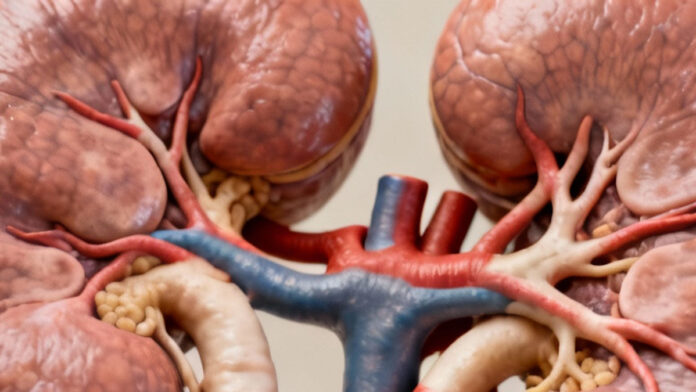Genentech has announced statistically significant and clinically meaningful results from the phase III INShore study of Gazyva (obinutuzumab) in children and young adults (aged two to 25 years) with idiopathic nephrotic syndrome (INS).
The study met its primary endpoint, with more people achieving sustained complete remission at one year (week 52) with Gazyva compared with mycophenolate mofetil (MMF). Sustained complete remission was defined by the absence of relapses during the study together with a low amount of protein in the urine (protein to creatine of 0.2 or less) at week 52. Certain important key secondary endpoints were also met. No new safety signals were identified, and safety was in line with the profile of Gazyva in adults.
“These results show that Gazyva may achieve robust disease control with a reduced need for corticosteroids, which are associated with serious side effects over time,” said Levi Garraway, chief medical officer and head of global product development.
“Idiopathic nephrotic syndrome is a severe and chronic kidney disease usually diagnosed in early childhood, yet meaningful treatment progress has been limited. As a targeted therapy, Gazyva has the potential to help address this unmet need and we look forward to sharing the data with health authorities.”
Gazyva is a Type II engineered humanized monoclonal antibody designed to attach to CD20, a protein found on certain types of B cells. Gazyva is also approved in 100 countries for various types of haematological cancers. In the US, Gazyva is part of a collaboration between Genentech and Biogen.
For several decades, treatment for idiopathic nephrotic syndrome has primarily relied on steroids yet relapse rates remain high and long-term use is limited by serious side effects. Newer approaches that target specific immune cells – such as B cells, thought to be a key driver of disease activity – may help control symptoms more effectively.
Analysis of key secondary endpoints showed statistically significant and clinically meaningful benefits with Gazyva with an increase in those with overall relapse-free survival (RFS), median time to relapse or death, reduction in cumulative corticosteroid dose from baseline to week 52, and fewer relapses from baseline to week 52, all compared with MMF. Other key secondary endpoints showed no significant difference with Gazyva versus MMF.
Data will be presented at an upcoming medical meeting and shared with health authorities, including the U.S. Food and Drug Administration and the European Medicines Agency.
INShore data add to a growing body of evidence, including the phase III REGENCY study in lupus nephritis, that shows targeting disease-causing B cells with Gazyva may help address disease activity across a spectrum of immune-mediated kidney and kidney-related diseases. In October 2025, Gazyva was approved in the US for the treatment of adults with active lupus nephritis who are receiving standard therapy, based on data from the Phase III REGENCY and Phase II NOBILITY studies.
In addition to idiopathic nephrotic syndrome, Gazyva is being investigated in membranous nephropathy, lupus nephritis, rare immune-mediated kidney diseases and systemic lupus erythematosus, an autoimmune disease that can lead to lupus nephritis, as part of our ambition to be leaders in immune-mediated kidney and kidney-related diseases.
Jim Cornall is editor of Deeptech Digest and publisher at Ayr Coastal Media. He is an award-winning writer, editor, photographer, broadcaster, designer and author. Contact Jim here.


